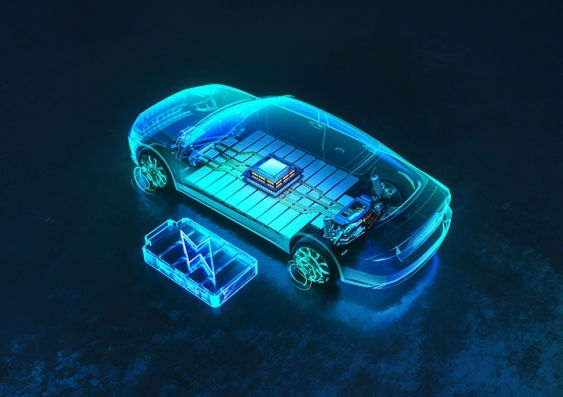Is DC fast charging bad for electric vehicle batteries ?
- yassine zeddou
- Oct 6, 2024
- 3 min read
Updated: Dec 11, 2024

DC fast charging provides the convenience of reducing charging time for electric vehicle (EV) owners, but there are concerns that it can affect battery health. Is DC fast charging bad for electric car batteries? In this article, we will examine whether frequent use of DC fast charging can adversely affect the life and performance of electric vehicle batteries.
It's an understandable concern given that electric car manufacturers such as Kia and Tesla have recommended the economical use of fast charging in detailed specification descriptions for some models.
What is the exact impact of fast charging on your battery and does it affect the health of your battery ?
What is Fast charging ?
Fast charging, also known as Level 3 or DC charging, refers to the fastest charging station that can charge an electric car in minutes rather than hours.
The power output depends on the charging station, but the DC fast charger can provide 7 to 50 times more power than a normal AC charging station. This high power is good for fast charging of electric vehicles, but it can generate large heat and put a strain on the battery.
How Fast Charging affects Batteries
Several studies, such as a 2020 study by Geotabs, found that over 2 years, with 3 or more fast charging per month, battery degradation increased by 0.1% compared to drivers who never used fast charging.
In another study by the Idaho National Laboratory (INL), two Nissan leaf pairs were tested and charged twice a day a year, with one pair using only normal AC charging and the other using only DC fast charging.
After nearly 85,000 kilometers on the road, a pair charged only with a quick charger lost 27 percent of its original capacity, while a pair using an AC charger lost 23 percent of its original battery capacity.
As both studies show, regular fast charging affects the health of the battery more than AC charging, even if the effects remain relatively small, especially considering that real-world conditions are less burdensome to the battery than these controlled tests.
So, is fast charging bad ?
Level 3 charging is a convenient solution for fast charging on the go, but in fact, you can see that regular AC charging properly meets your daily needs.
Even at the slowest charge level 2, using fast charging wouldn't be a daily experience for most people, as medium-sized electric vehicles will actually be fully charged in less than 8 hours.
DC fast chargers are much more bulky, expensive to install, and require much higher voltages to operate, so they can only be found in certain places and are usually not available in public.

Best Practices for Charging the Battery
It is undeniable that fast charging is still an important part of electro-mobility and an important tool for using and moving electric vehicles. The occasional quick charge will not harm your battery and will not significantly reduce its capacity.
Nevertheless, there are some best practices to follow when fast charging to make sure the impact on your battery is as small as possible. On the one hand, avoid fast charging on very hot days or, if so, try charging in the shade to prevent the battery from overheating.
While it can be charged in cold weather without damaging the battery, the vehicle's battery Management system (BMS) optimizes the charging process and protects the battery.
It is recommended that all lithium〜ion batteries be charged between 20-80%, as extremely low or high charging conditions can damage the battery over time. For daily use, it is worth charging an electric car up to 80% and using a full charge only when necessary for long-distance travel.
Battery aging
Electric vehicle batteries age over time and lose some of their capacity in the process. However, the loss of capacity is only about 2.3% per year, which is unlikely to affect the daily use of electric vehicles
Fast charging can increase the rate at which the battery loses capacity, but the real impact is only about 0.1% more capacity loss than without fast charging.
conclusion
Occasional DC fast charging is generally safe, but excessive use can lead to faster battery degradation due to high cell heat and stress. The balance between fast charging and slow normal charging methods can help extend battery life and maintain the optimal performance of electric vehicles.





Comentarios